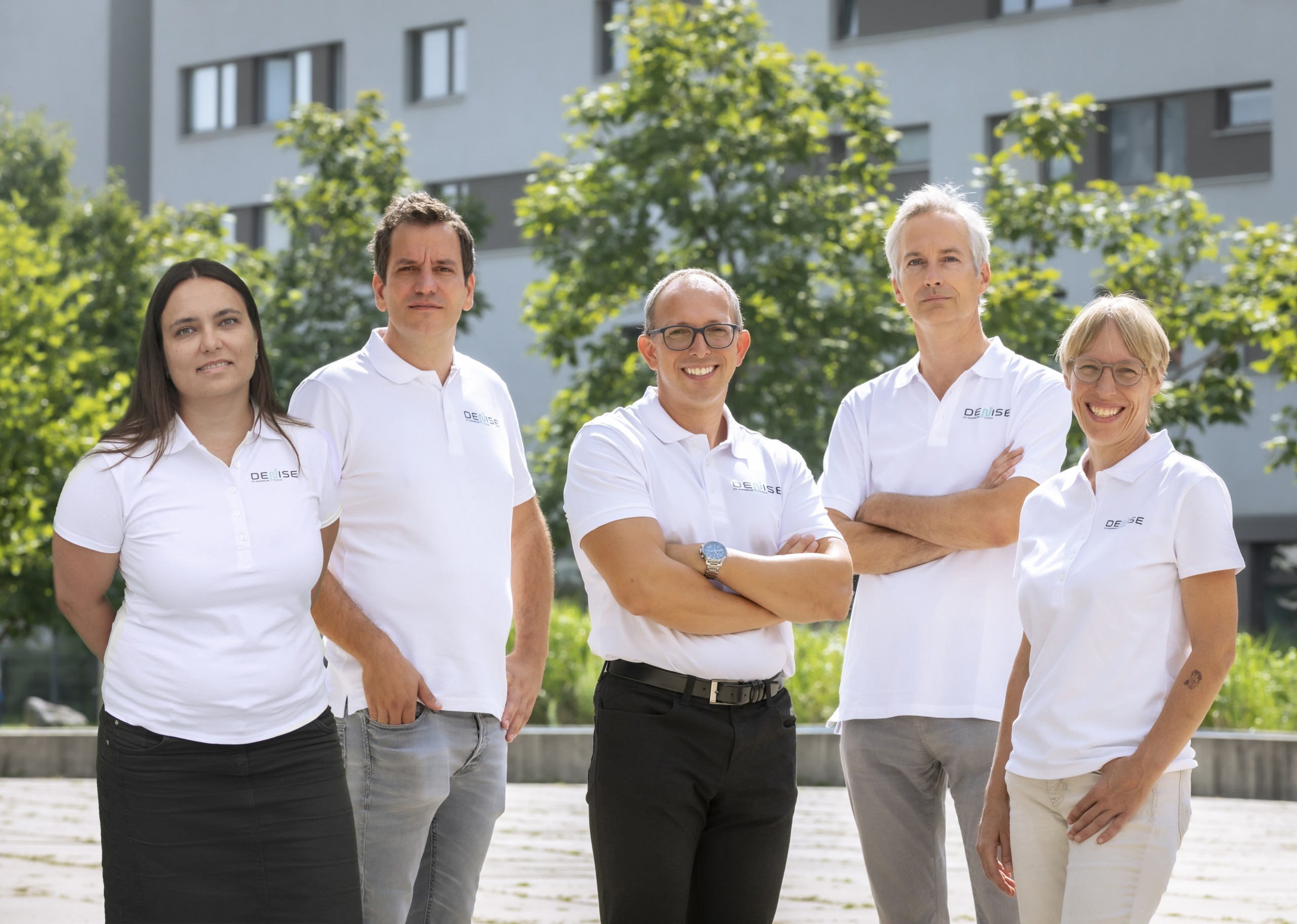Sommerschule für Wissenschaftler:innen
Die „Summerschool“ des Doktoratsprogramms DENISE von der FH JOANNEUM und TU Graz versammelte Anfang Juli 35 junge Wissenschaftlerinnen …









Electronics-based systems (EBS) make our world “smart” by combining advanced electronics and software, often in networked systems that interact with the physical world through sensors and actuators. Most EBS applications in production or transportation are safety-critical: EBS failures may cost human lives. We thus aim to find fundamental concepts and methods, but also application-oriented tools to make EBS dependable, where dependability summarizes attributes of a system allowing humans to trust EBS.
DENISE extends existing close ties among TU Graz and FH JOANNEUM with a truly joint doctoral programme introducing many novel elements (e.g., cross-institutional supervision teams, cross-institutional curriculum, cross-institutional joint experimental infrastructures) based on the vast international experience of the faculty and thus meeting highest international standards.
Graz is an international EBS hotspot, thus existing strengths are strengthened and critical mass is generated by bundling expertise of both institutions. Demands of Graz’ ecosystem for researchers dually trained in basic and application-oriented research are met. A lasting doctoral education network will be established among FH JOANNEUM and TU Graz which will bring the spirit of top research to FH JOANNEUM with full support of both rectorates who will donate substantial additional resources.

Photo: © TU Graz / Jimmy Lunghammer
DENISE faculty members, from left to right: Olga Saukh, Joachim Schauer, Christian Vogel, Kay Römer and Annette Mütze.
The DENISE faculty currently consists of 5 members. Their competences cover a large share of dependable EBS, with a track record both in basic and application-oriented research.
The Members of the Faculty:
The doctoral students of DENISE will be employed for 4 years in predoc research positions either at TU Graz or FH JOANNEUM, based on the matching with supervisors.
The Austrian Science Fund FWF is funding the joint training of doctoral students from the two Styrian universities TU Graz and FH JOANNEUM in the field of electronics-based systems (EBS) through the new funding framework doc.funds.connect. Additional funding is provided by the host institutions to allow for full-time employments of the candidates.
This funding measure initiated by the BMBWF facilitates the creation of a cooperative doctoral programme between universities and universities of applied sciences. The programme promotes collaboration between the institutions, enhances the research capabilities of universities of applied sciences, and provides PhD students with additional career development opportunities.